Changing Hearts and Minds
As recent studies and the teachings of Blessed John Paul II as well as Popes Benedict XVI and Francis recognise, what a society and its members accepts as the grounds for its ethical inspiration and authority relies on many factors. Not only are religious and secular assumptions important in influencing people, but also unspoken and intangible factors such as personal experience, peer pressures, conflicting desires and media messages. Into this complexity, Catholics are called to offer the world a new counter-cultural way of looking at human life and death. In the last decade, a whole generation of women and men have responded to these demands by becoming experts in the human and healthcare professions, by studying the deep philosophical and theological issues underlying the Church’s teachings and in different ways “walking the talk” of the “culture of life” alongside those faced with puzzling and distressing bioethical questions. The CWLA has committed its members to this approach to its bioethical work and interventions.
Information about some of the key bioethics issues today:
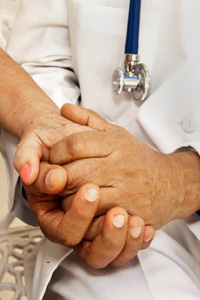
End of Life Issues
As a larger proportion of the Australian population survives into the later decades of life, so concern about the manner, context and ethics surrounding death and elderly care grows in significance. Resources available in this section address issues such as respect for the dead, palliative care, forward planning for loss of competence, decisions about discontinuation of treatment and euthanasia.
- A guide for health care professionals implementing a future health care plan
- A guide for people considering their future health care
- Briefing Note on the Obligation to provide Nutrition and Hydration
- Dignity... Now and at the Hour of Death
- Euthanasia - Myths and Reality
- Federal and Victorian Euthanasia Bills
- Palliative Care and the End of This Life
- Respect Life Sunday 2011 - Poster (Archdiocese of Melbourne)
- Respect Life Sunday 2011 - Prayer Card (Archdiocese of Melbourne)
- To Love... to the End - Planning a Good Death

“It is necessary to become courageously ‘pro-woman,’ promoting a choice that is truly in favour of women.”
Blessed John Paul II, Crossing the Threshold of Hope, 1995.
Abortion
The acceptance and legalisation of the medical termination of pregnancy remains one of the most complex and divided ethical issues in our contemporary society. This topic raises questions about the status of unborn human life, the situations in which women choose abortion, pregnancy “reductions”, chemical abortifacients and alternatives to termination. For additional information see:
- Abortion Fact Sheet
- Beginning the Journey - The Wonder of Life Within
- Caring for those who have lost unborn children
- Changing Hearts & Finding New Alternatives
- Defending Conscience and Protecting Life
- Healing the Broken Hearted - Sowing the Seeds of Hope after Abortion
- Pre-Natal Testing: Caring for your unborn child?
- Pro-Woman and Pro-Life
- Questions & Answers on RU486
- RU 486: Is it really easier and safer?
- The Myth of the Perfect Child
- The Unborn Child
- Vaccines prepared from cells derived from aborted human fetuses
These downloadable resources are sourced primarily from the Archdiocese of Melbourne Life, Marriage & Family Office, the Life Marriage & Family Centre of the Catholic Archdiocese of Sydney and the Queensland Bioethics Centre. Used with permission.
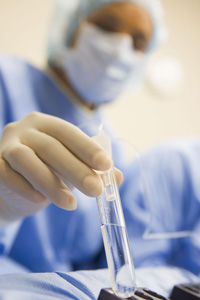
Reproductive Technologies
Many of the most difficult bioethical questions arose over the last thirty years as Australia became one of the leading centres for new “assisted reproductive technologies” (ARTs) which were originally designed to provide infertile couples with their own experiences of pregnancy and childbirth. Now the field has expanded to include any related issues including: gamete donation, IVF, embryo screening, gamete and embryo experimentation and storage and surrogacy. For additional information see:
- Catholics and reproductive technology
- Longing for a Child
- Prayer to Our Lady of Seidnaya
- Life – A Gift Always Worth Living
- Dignitas Personae (The Dignity of the Person) was released by the Congregation for the Doctrine of the Faith in December 2008. This Vatican document about in vitro fertilisation (IVF) and embryo experimentation is an update of a document written more than twenty years ago, Donum Vitae (1987), and seeks to address the questions raised by recent developments in biomedical research.
- Address by Pope Benedict XVI, International Conference on Adult Stem Cells: Science and the Future of Man and Culture, Clementine Hall, Saturday, 12 November 2011.
- The Moral Frontiers of Stem Cell Research
These downloadable resources are sourced primarily from the Archdiocese of Melbourne Life, Marriage & Family Office, the Life Marriage & Family Centre of the Catholic Archdiocese of Sydney and the Queensland Bioethics Centre. Used with permission.
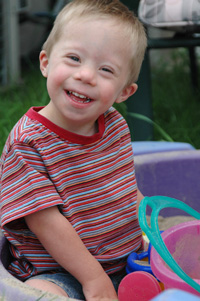
Genetics & Disability
Related to the issue of reproductive technology is enormous growth in the science of genetics and our mapping of the human genome. The ability to associate certain human illnesses and characteristics with genetic markers, has given rise to the ethics of pre-natal screening, post-natal screening and the genetic screening of embryos created in ARTs.
These topics also provoke us to rethink how we and society view the use of these technologies and, the way in which we preserve the uniqueness and dignity of those members of our communities affected by disability.
Life – A Gift Always Worth Living
Take a few minutes to watch the moving short film below, ‘99 Balloons’, about Eliot Mooney who was born with a chromosomal abnormality known as Trisomy 18. Eliot was prenatally diagnosed with this genetic disorder which caused him to have an undeveloped lung, a hole in his heart and DNA that placed faulty information into each and every cell of his body. His parents, Matt and Ginny, were confronted with preparing for their son's birth and early death. Knowing that Eliot’s chances of long-term survival were almost nil, his parents, Matt and Ginny Mooney, decided to celebrate their son’s birthday on each of the 99 days of his life.
99 Balloons | Igniter Media
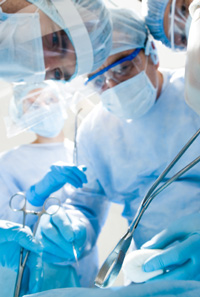
Organ & Tissue Donation
The ability to transplant human cells, tissues and organs to overcome disease and disability has opened both promising and perplexing issues for governments, healthcare professionals and the public. Issues which arise here include those surrounding the donation and collection of organs and other tissue, stem cell research, the determination of death and whether donated tissues and organs should be paid for or receive other remuneration.
For additional information see:
- The Address of His Holiness Benedict XVI to the Participants in the Symposium on the Theme: "Stem Cells: What Future for Therapy?" which was organised by the Pontifical Academy for Life.
- For a useful discussion of the legal and ethical issues which pertain to the Australian context see the National Health and Medical Research Council’s: Making a Decision About Living Organ and Tissue Donation
- Protecting Life and the Gift of Organ Donation
- And for information about organ donation after death see Organ and Tissue Donation After Death, for Transplantation - Guidelines for Ethical Practice for Health Professionals
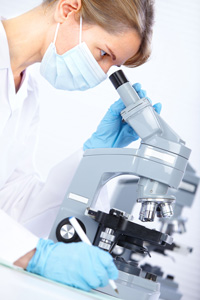
Other Bioethics Issues
There are hundreds of emerging bioethical issues which are of concern to Catholics and to the CWLA —and many of these also arise for our CWLA Social Issues Convenor and her counterparts in each of our Member Organisations. Some of the issues which can be found here include: the distribution and allocation of healthcare resources, environmental issues, medical research and experimentation, population ethics, the treatment of people with mental health conditions and those affected by drug use and abuse.
A useful statement of Catholic healthcare principles can be found in the Catholic Health Australia Code of Ethical Standards